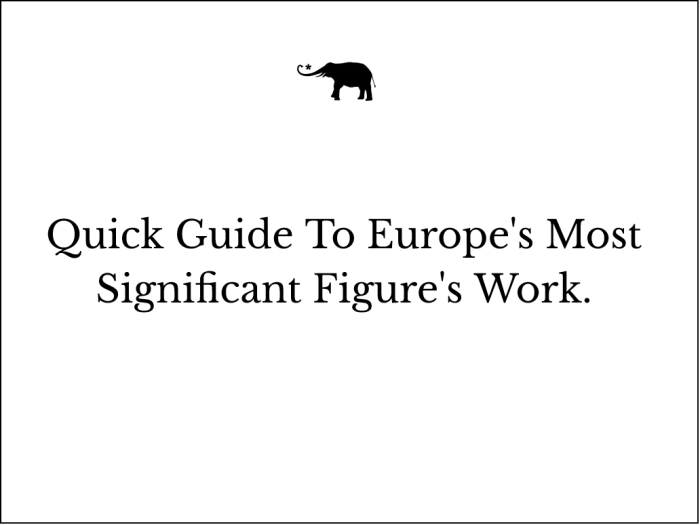© Philo Musings
In the words of Vladimir Nabokov, If Kafka’s “The Metamorphosis” strikes anyone as something more than an entomological fantasy, then I congratulate him on having joined the ranks of good and great readers.
Major Themes
- Isolation
- Alienation
- Absurdism
Summary
Repetitive mundane tasks have worn Gregor Samsa, a travels salesman by profession. The futility of tasks is not stopping him, as he has to pay off his father’s debt. Gregor is found to be struck in the class struggle — a low-income household breadwinner who cares for his family’s needs. Gregor is reflecting on his job as a traveling salesman when he finds himself transformed into a vermin and loses his voice(!?). Laying in his bed he contemplates his transformation. Gregor shows no expected feelings on his transition and rather tries to sleep(embracing the absurd.)
Bedroom doors — barrier or a gateway
Scene of Die Verwandlung opens with Gregor, transformed into a vermin. He is struggling to understand this transformation but lauds himself for locking doors, as it allows him some time for himself. These doors also symbolize portals to his other world. HE admires his habit of locking doors, which he has acquired from being a salesman. Though the shut doors keep his new identity hidden for a while, he eventually has to reveal himself when his family and chief clerk insist to do so.
Metamorphosis of family
“the words he uttered were no longer understandable.”
The story moves forward with Gregor’s parents entrapping him in his bedroom after realizing, he practically, is of no value to them. Hence he’s deprived of the right to exist. In the novella, notable metamorphosis is of “ The Gregor’s family”. Kafka mocks the human relationship’s delusion. When Gregor transforms, he loses his voice. He takes beating both emotionally and physically by he family, which signifies his dire hope for acceptance & longing communication.
- His Mutter, Mrs, Samsa, has kindly feelings for his son but is not ready to confront a bizarre vermin and faints when confronted a bizarre insect. On the other hand, Mr. Samsa, who despite working all his life, is bankrupt, draws himself out after the transformation of their sole breadwinner & tries to get rid of him by attacking with an apple ( By this collision with his father, his little legs get injured and these wounds leads to his death.)
- Greta — his dear sister, reluctantly shows affection and offers him food. Sadly, this changes as the family loses hope of his recovery and negates to forgo their “normal” life. The doors are now shut, and their behavior becomes insensitive and rather hostile. Gregor is now seen as a parasite — of no notable value. This ruthlessness towards his transformation causes Gregor to realize the absurdity of life. He is equally disappointed at his transformation and is often seen contemplating this absurdity throughout the novella.
Reflection of Kafka’s Personal Life
(Fatherly complex in Kafka’s writings)
Gregor is the archetype of many of Kafka’s heroes; timid, reluctant to act — helpless in some ways. The relationship of Unnamed man in the novella, known as Mr. Samsa, and his son Gregor reminds of Hermann Kafka & little Franz. As Kafka writes( in Letter to Father ) he was intimidated by Hermann.
With Gregor’s bizarre transformation Mr. Samsa, shows contempt towards him. It’s easier to see the character of Gregor Samsa & Metamorphosis as an autobiography of Franz Kafka.
Final annihilation (End of suffering)
“He remained in this state of empty and peaceful reflection until the tower clock struck three o’clock in the morning. From the window he witnessed the beginning of the general dawning outside. Then without willing it, his head sank all the way down, and from his nostrils flowed out weakly out his last breath.”
The death scene of Gregor, depicts that he has come to terms with it, he is no longer feared of death, and embraces it “in a state of empty and peaceful reflection.” His death ends the suffering of his family and frees them.
- Charlady breaks the good news of Gregor’s death to his family and disposes of the body.







Read 0 comments and reply